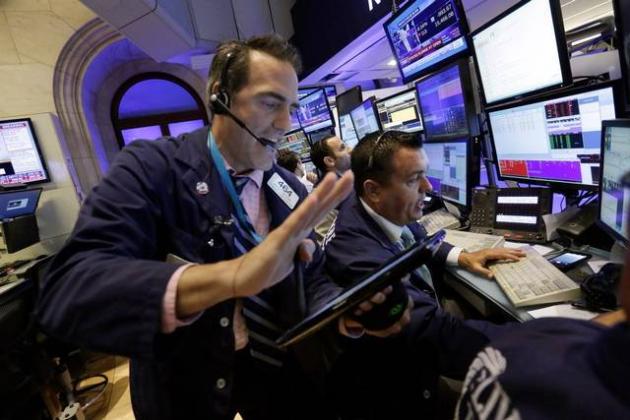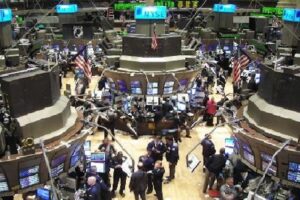Better-than-expected inflation data fails to lift Wall Street

NEW YORK, New York – A less-than-expected CPI jump in August failed to lift U.S. markets on Tuesday.
“We’re in a seesaw market,” Greg Bassuk, chief executive at AXS Investments in Port Chester, New York told Thomson Reuters Tuesday. “Until there is more consistency in the trajectory of economic recovery, the double rotation trades we’re seeing right now will continue.”
“Investors are still cautious. Besides the economic data, they care about the continued spread with delta variants, uncertainty with the Fed, as well as geopolitical concerns,” Bassuk added.
At the close on Tuesday, the Dow Jones industrials were down 292.06 points or 0.84 percent at 34,577.57.
The Nasdaq Composite declined 67.82 points or 0.45 percent to 15,037.76.
The Standard and Poor’s 500 dropped 25.68 points or 0.57 percent to 4,443.05.
The U.S. dollar was mixed. The euro fell to 1.1805. The British pound softened to 1.3805. The Japanese yen was sharply higher at 109.63. The Swiss franc firmed to 0.9195.
The Canadian dollar weakened to 1.2689. The Australian dollar dropped to 0.7319. The New Zealand dollar fell to 0.7089.
In Europe, the Dax in Germany edged up 0.14 percent. The Paris-based CAC 40 lost 0.36 percent.
In the United Kingdom, the FTSE 100 was down 0.49 percent.
On Asian markets, the Nikkei 225 jumped 222.73 points or 0.73% to 30,670.10, its highest level since August 1990. The broader Topix rose 1.01% to 2,118.87.
“The difference between today and yesterday is that today’s gain is led by a rebound of U.S. stocks,” Seiichi Suzuki, chief equity market analyst at Tokai Tokyo Research Institute told Thomson Reuters Tuesday.
“When economically sensitive (cyclical) stocks lead the U.S. market, that works favourably to the Japanese market because Japan has no big growth shares equivalent to GAFA (Google, Apple, Facebook, and Amazon), so the market can’t take advantage of their gains.”
In Australia, the All Ordinaries added 14.20 points or 0.18 percent to 7,740.30.
In China, the Shanghai Composite went against the trend, falling 52.77 points or 1.42 percent to 3,662.00
Hong Kong’s Hang Seng declined 311.58 points or 1.21 percent to close Tuesday at 25,502.23.



